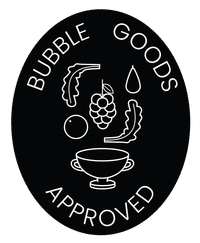👁 Contents
Frequently Asked Questions
1. What is magnesium?
2. Why is magnesium important for health?
3. What are the signs of magnesium deficiency?
4. What are some good sources of magnesium?
5. How can I increase my magnesium intake?
When it comes to maintaining optimal health, there are many dietary components to consider. One mineral that often flies under the radar but plays a crucial role in your well-being is magnesium. This essential element is involved in numerous bodily functions, and understanding its importance could be the key to improving your energy levels and overall health. Let’s delve into what magnesium is and why incorporating it into your diet is vital.
What is Magnesium?
Magnesium is a naturally occurring mineral found in various foods, particularly plant-based sources. It is known as a macro-mineral, meaning our bodies require it in relatively large amounts compared to trace minerals. Magnesium enables critical biochemical reactions in the body, influencing everything from your muscle function to your heartbeat.
The Role of Magnesium in Your Body
Every cell in your body contains magnesium, and it is essential for over 300 enzymatic reactions. Here are just a few of the key functions magnesium contributes to:
Energy Production
Magnesium plays a vital role in the metabolic processes that convert food into energy. Without adequate magnesium, your body’s ability to produce adenosine triphosphate (ATP)—the primary energy carrier in cells—could be impaired. Hence, low magnesium levels can impact your energy levels, leaving you feeling fatigued.
Nervous System Regulation
This essential mineral is crucial for brain health, contributing to the functioning of neurotransmitters and regulating synaptic function. Adequate magnesium levels facilitate better communication between neurons, supporting cognitive functions and potentially reducing anxiety.
Muscle Function and Recovery
Magnesium helps to relax muscles and prevent cramps. It plays a key role in muscle contraction and relaxation, making it especially beneficial for athletes and those who engage in regular physical activity. When you're recovering from a workout, sufficient magnesium can minimize soreness and enhance recovery.
Signs of Magnesium Deficiency
Magnesium deficiency is more common than many think, often due to a diet low in whole foods. Here are signs you may be lacking this vital mineral:
- Muscle cramps or spasms
- Fatigue or general tiredness
- Difficulty sleeping
- Increased anxiety and irritability
- Weakness or loss of appetite
- Abnormal heart rhythms
Sources of Magnesium
Incorporating magnesium-rich foods into your diet can help you maintain healthy levels. Here are some great sources of magnesium to consider:
- Leafy greens such as spinach and kale
- Legumes like black beans and lentils
- Whole grains, including brown rice and quinoa
- Nuts and seeds, particularly almonds and pumpkin seeds
- Fatty fish, such as mackerel and salmon
- Dark chocolate (70% cocoa or higher)
Additionally, certain foods can be uniquely beneficial. For instance, sourdough olive bread not only provides magnesium but also comes with the added benefits of healthy fats from olives and probiotics from the sourdough fermentation process, promoting digestive health.
Daily Magnesium Requirements
The recommended daily intake of magnesium varies by age and gender. Generally, adult men should aim for about 400-420 mg per day, while adult women require around 310-320 mg. Pregnant and breastfeeding women may need more. Monitoring your intake can help ensure you're meeting these guidelines.
Ways to Boost Your Magnesium Intake
If you've identified that your magnesium levels may be lacking, don’t worry! Here are some actionable steps to increase your intake:
- Incorporate more magnesium-rich foods into your meals: Planning dishes around vegetables, whole grains, and legumes can help.
- Try magnesium supplements: Consult a healthcare professional before starting any supplement regimen to figure out what is best suited for you.
- opt for less processed foods: Whole foods are generally better sources of magnesium and other nutrients than heavily processed options.
- Experiment with different recipes: Try new dishes like sourdough olive bread or smoothies with spinach, nuts, and seeds to boost your intake seamlessly.
- Hydrate wisely: Certain mineral waters can also be a good source of magnesium.
Potential Health Benefits of Magnesium
Maintaining adequate magnesium levels not only helps support core bodily functions but may also offer various health benefits:
Improved Mood and Mental Clarity
Studies have shown that magnesium may help modulate mood and has been linked to reduced symptoms of anxiety and depression. A healthy level of magnesium can contribute to overall emotional well-being.
Support for Bone Health
Magnesium plays a crucial role in maintaining bone density and health. Individuals with low magnesium levels may be at an increased risk for osteoporosis and fractures.
Heart Health
Magnesium helps regulate heart rhythms and maintain healthy blood pressure levels. Its anti-inflammatory properties can contribute to cardiovascular health, potentially reducing the risk of heart disease.
Better Digestion
Magnesium supports digestive health by aiding muscle contractions in the digestive tract and promoting normal bowel function, potentially preventing constipation.
Integrating Magnesium into Your Lifestyle
Understanding the importance of magnesium can lead to positive changes in your diet and overall health. Here are some lifestyle tips to help ensure you’re getting enough magnesium:
- Be mindful of stress management: High-stress levels can deplete magnesium; practice relaxation techniques like yoga or meditation.
- Check your medications: Some medications may impact magnesium absorption; discuss with your healthcare provider.
- Read labels: Be aware of processed foods that might be low in magnesium.
- Make eating healthy a priority: Meal planning and prepping can help ensure you're focusing on nutrient-dense foods, including magnesium-rich options.
Your Path to Vibrant Health
Magnesium is one of those unsung heroes playing a pivotal role in promoting and sustaining health. By focusing on your magnesium intake through whole foods—like delicious sourdough olive bread—and understanding its significance, you can boost not only your energy levels but also enhance various functions critical for well-being. Start today, and you may just unlock the door to a healthier, more vibrant you!














